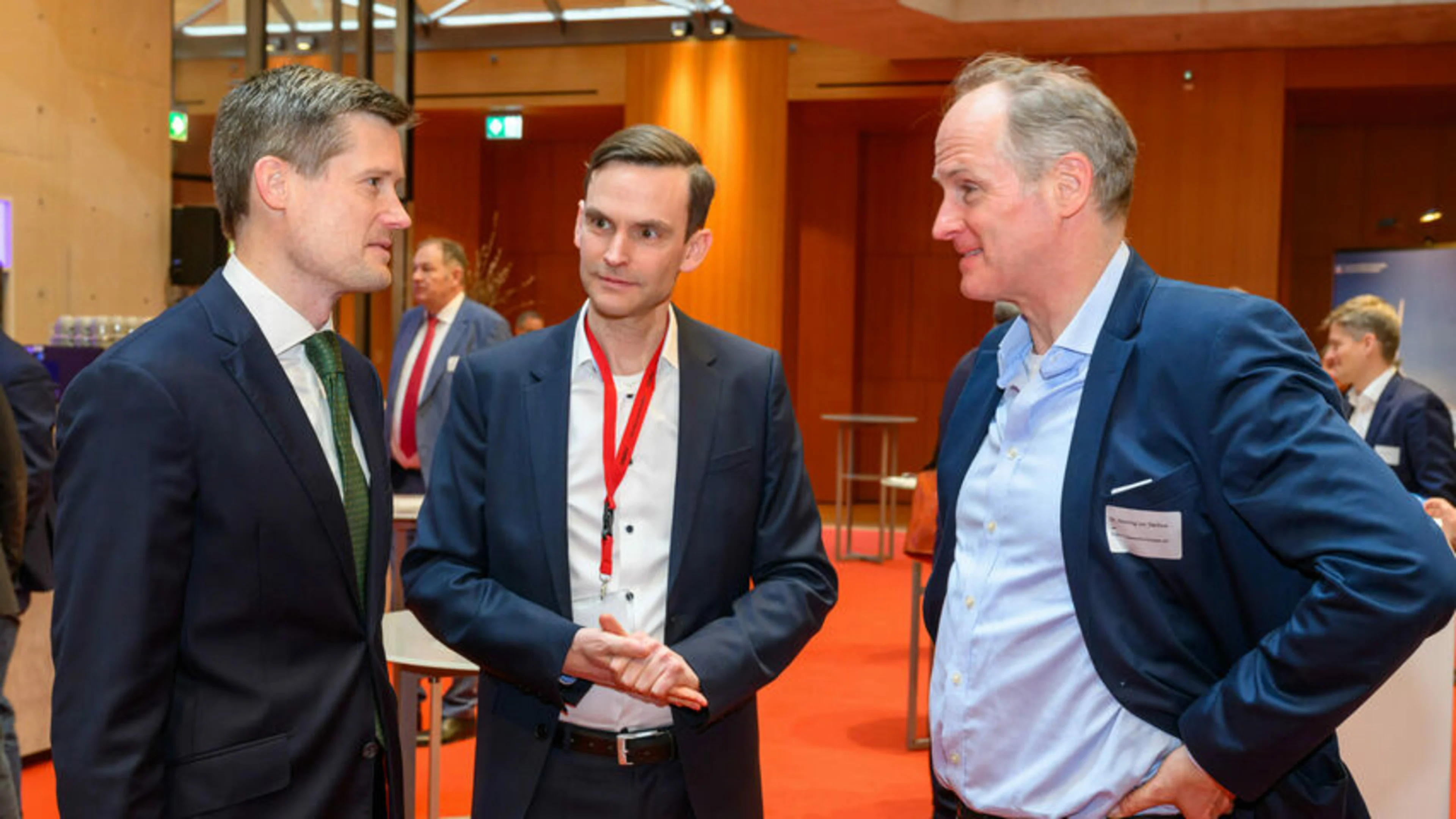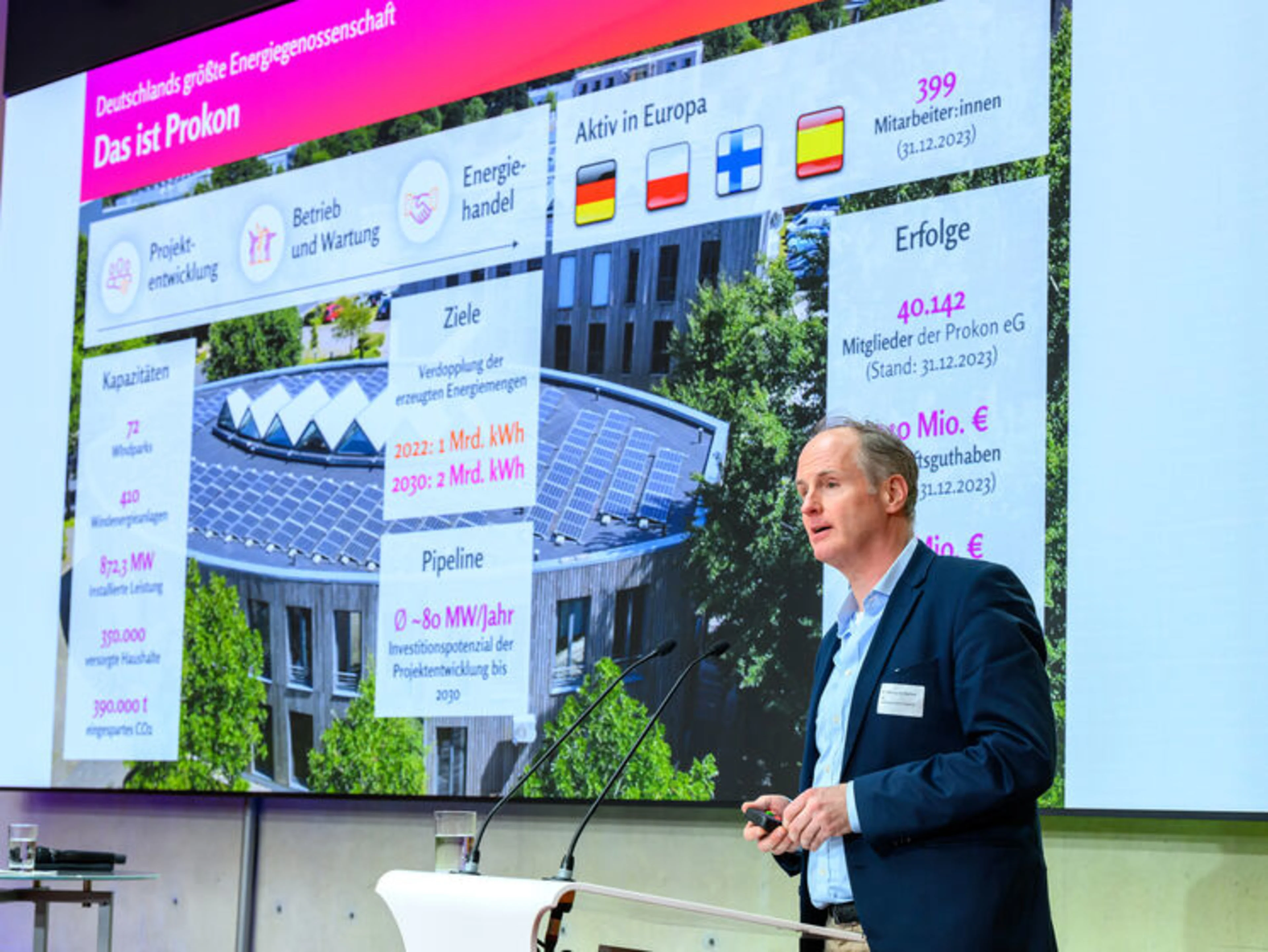Young cooperatives receive strong support in establishing themselves from the regional cooperative associations. "Knowledgeable contacts take care of the concerns of the founding members here," explains Dr. Andreas Wieg, Head of the Federal Office for Energy Cooperatives.
This is a sub-department of the overarching German Cooperative and Raiffeisen Association e. V. (DGRV), the nationwide umbrella organization for cooperatives based in Berlin (see last paragraph). In the capital city, the association carries out important lobbying work for Germany's energy cooperatives. "We engage with MPs and political decision-makers to represent the positions of the energy cooperatives, suggest improvements, and point out shortcomings," explains Wieg.
The association receives support, among others, from Prokon, Germany's largest energy cooperative. At the last Federal Congress for Cooperative Energy Transition, the annual industry meeting and main event of the DGRV, Prokon board member Henning von Stechow appealed to the government to accelerate the urgently needed expansion of the grid. The joint demands are: "More speed through less bureaucracy, nationwide regulations, rapid digitization of grid connections, and more fairness in grid fees."

